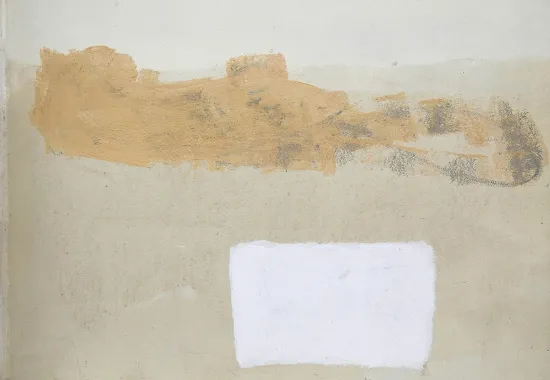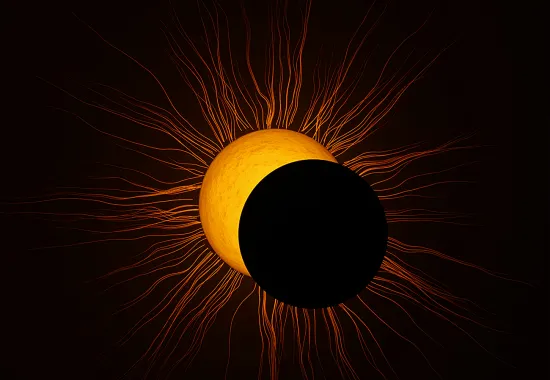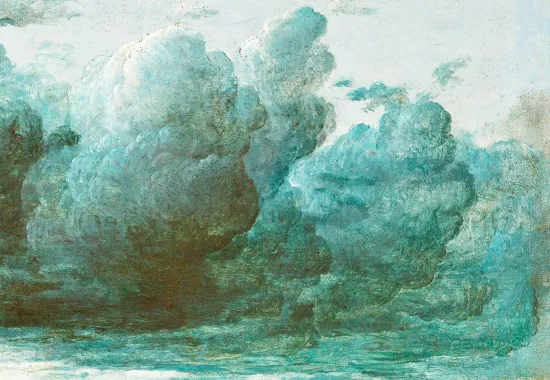Notes on "How to Keep It Real When Everything Has Gone Wrong" from issue 301.1
How to Keep It Real When Everything Has Gone Wrong
Ladies and gentlemen, party people and displaced souls,
we’re now reluctant refugees of a scratch-and-dent world.
This moment would mimic countless others we’ve squandered
were it not for this impromptu sermon. We should know better
than to be reckless with the truth. Honesty is careless by nature,
a master of bad timing, a deadbeat father repeating his litany
of stillborn promises. You see, everything’s a metaphor. Aging
unravels the seams of memory; this town is a broken wristwatch
since nothing changes with the passage of time. We can spend
an eternity preparing for life and never actually be ready for it,
code switching from lane to lane like a drunk driver. Keeping it real
contradicts the false gospel of faking it until you’ve made it. Goodbye
to wasted hours, bottoms up to better days. Hundred-proof hopes
will loosen our primitive tongues and their vocabulary of detritus.
All ideas are derived from preconceived notions and borrowed logic.
The neighbor’s dog who barks at nothing really has something to say.
We all start empty-handed. Sometimes optimism is not enough.
Sometimes faith falls down like a boulder and rolls off unnoticed
until it turns to dust. That is the blues. Not the music, but its spirit,
lyrics as serious as society’s soliloquy of no. Ask a damaged stereo
why silence is its only song. Ask the highway why it yearns to reach
new destinations. Brothers and sisters, if you stay down until you
come up, things will get better before they get worse. Word is bond.
“How to Keep It Real When Everything Has Gone Wrong” is part of an unpublished manuscript I’ve written that will soon land in a few presses’ mailboxes. The manuscript has a strong blues aesthetic - not the blues poem as a form, but the melancholy pulse of blues music. So these poems dwell on bad decisions and hard luck, and are a bit downhearted in nature. Yet some towards the end of the manuscript give a slight nod to hopefulness, which is what ultimately grew within this piece.
Since I work a full-time job and have other commitments that draw upon my time, my writing happens in bits and spurts rather than within any sort of disciplined framework. I am continuously reading though - be it novels, poetry collections, self-help books, or literary journals. Spending a certain amount of time every day immersed in other people’s writing has a definite (conscious or unconscious) impact on my work. Being able to pinpoint what it is that I like and want to work towards is invaluable. It helps define what I’m trying to do, or at least prods me to think about my own projects more objectively.
While reading, I jot down notes and ideas that eventually slide their way into poems, once I have time to sit and thread things together. It’s evolved into a loose collage-ish process where I never know for sure what I’m going to end up with at the conclusion, or what direction an individual piece will wind up taking. Sometimes I get a load of garbage, but other times I may get something special.
I often begin constructing a poem with one phrase that I mutter under my breath for days, until I can’t hold it in any longer. That’s what happened with “How to Keep It Real When Everything Has Gone Wrong”, although it’s not one of the introductory lines, but rather one that resides in the middle of the poem. It’s funny, thinking back, how many potential poems and/or drinking anthems could have been composed around the phrase “Goodbye to wasted hours, bottoms up to better days,” but this is the one that developed.
One thing I do after drafting a free verse poem is take out all the line breaks —transitioning it into prose during an initial edit and then re-breaking it all over again. By flipping between verse and prose, I gain insight on what may be superfluous, which helps me eliminate the inessential.
Despite its patchwork development, this poem reads in a stream of consciousness manner that mimics the strange pressure cooker of our modern world. As it developed, I attempted to make the poem read like an arpeggio sounds, restless with flurried phrase and dynamic image. I think the layered metaphors and symbolism help build intrigue up to the conclusion, and hopefully keep a reader wondering what’s going to tie all of the disjointed concepts together.
I don’t know about other poets, but I try not to take my writing too seriously. I want to avoid making it more important than it is. I stick with the notion that I have things to say and can usually say them in a manner that’s relatable and tangible enough to entertain. While writing, I simply plug away until I piece together the next decent line. If I get that, I’m happy.
Matteo Gallo is curious, ambitious, stubborn, distracted, picky, clumsy, thoughtful, moody.
He's always been passionate about science and science fiction, so he tries to keep his mind open and learn something from every experience. For many years he has been dedicating himself to drawing, graphic design, photography and music, mainly self-taught: he attended courses for every one of these subjects, but, luckily or unluckily, the way his brain works is an obstacle to learning by traditional methods. He decided to deepen them in his own way. He loves solitude, nature, with the wind caressing his face while he rides his bicycle, sneaking out of his home in the dead of night, and every form of creative expression.
Recommended
Mercy
Eclipsing
Psychic Numbing







